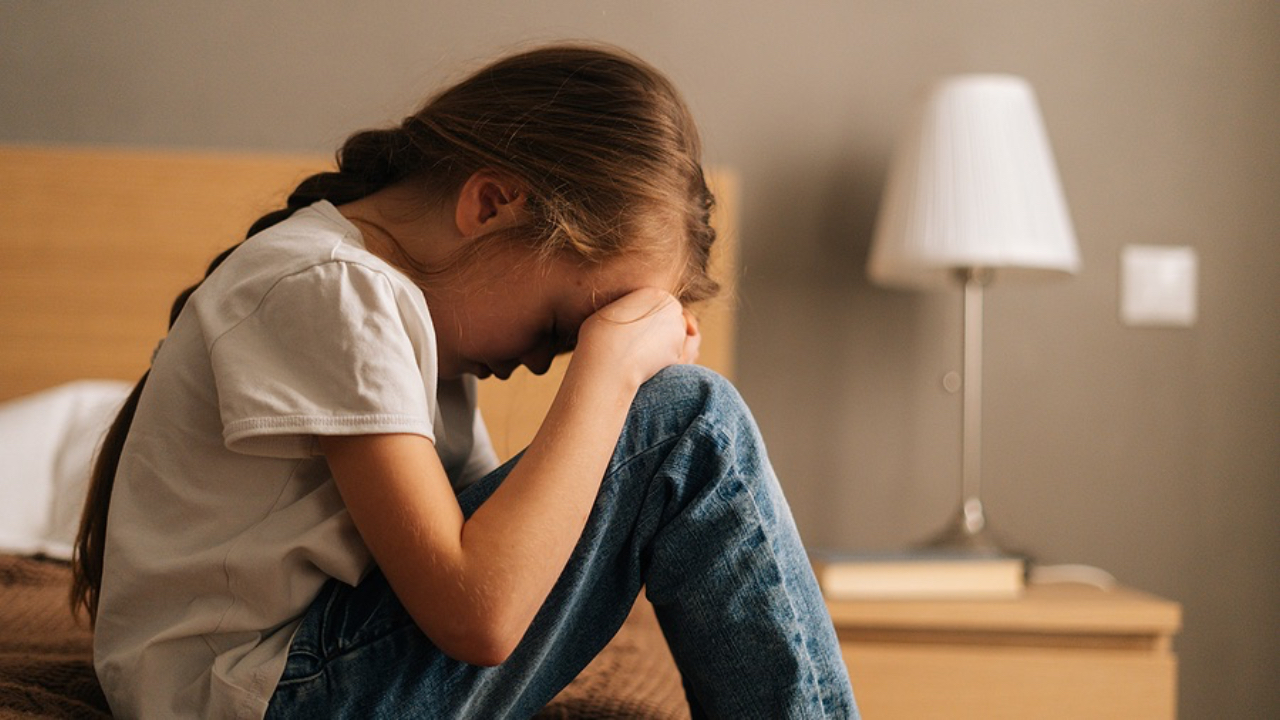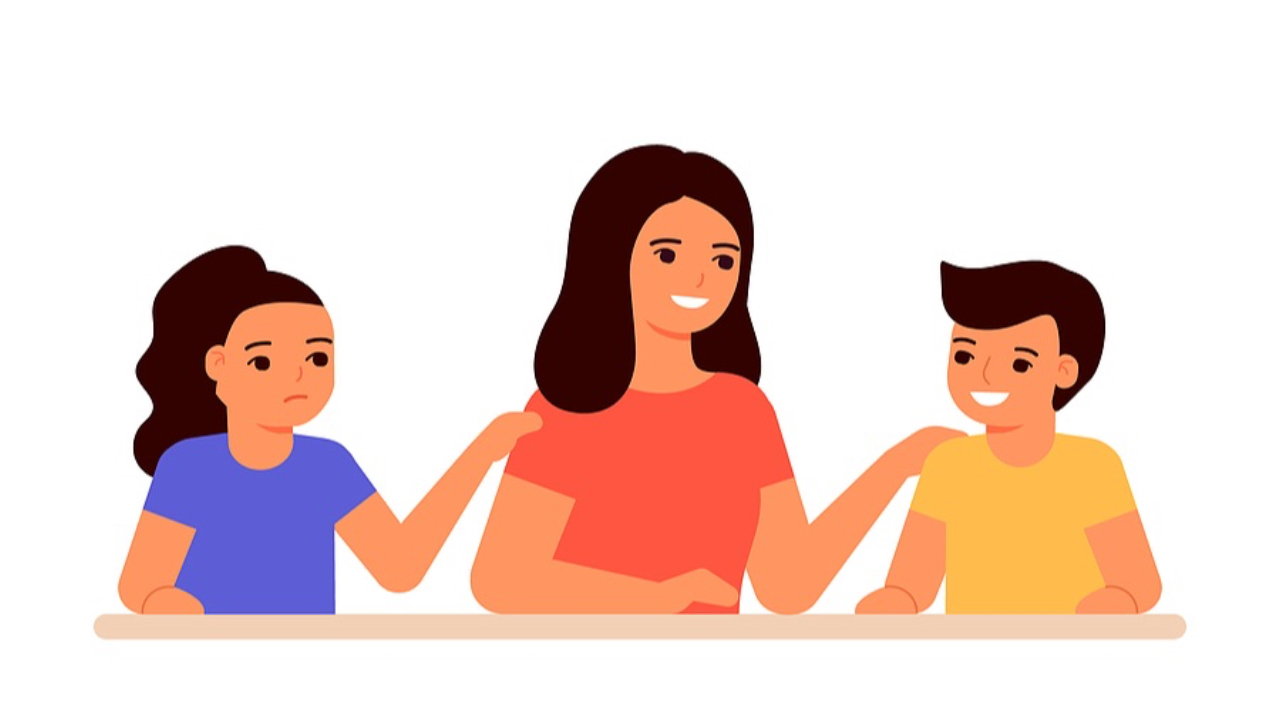Picking Up the Pieces: Helping Your Child Heal After A Betrayal
Aug 29, 2025
This month, I want to talk about something that can often be difficult for parents to navigate, and that is what to do when a child has been let down by someone they trusted.
Whether it's a close friend who turned on them at school, a teacher who humiliated them, a sibling who broke a promise, or even a parent whose actions hurt the family (like an affair), trust ruptures can leave children feeling confused, rejected, or deeply wounded.
If you’re parenting a child who’s been hurt—no matter the cause—you may be wondering how to help them heal, rebuild trust, and feel safe again. Whether you were directly involved or are supporting them from the outside, this post offers gentle guidance to help you show up in a way that truly makes a difference.
How Children Understand Betrayal
Children don’t always have the words to explain how deeply a breach of trust affects them—but they feel it, often very strongly.
They might push boundaries, withdraw, become anxious, or lash out in anger. They may blame the wrong person, or even blame themselves, and if the betrayal came from someone they loved or admired—like a best friend, a favourite teacher, or a family member—their whole emotional world can feel like it’s been turned upside down.
Trust, for children, isn’t built on abstract ideas. It’s built on consistency, honesty, and emotional safety. When those foundations are shaken, it takes time to rebuild them.
If Your Child Was Let Down by a Friend, Teacher, or Sibling…
While betrayals between adults and children (like a parent’s affair) are often deep and complex, everyday betrayals in a child’s world matter too—and they can be just as painful.
Examples might include:
-
A best friend suddenly dropping them or turning nasty
-
A teacher speaking harshly or publicly embarrassing them
-
A sibling lying or revealing a private secre
Here's how to support them:
1. Listen Without Jumping to “Fix”
The most healing thing you can offer is your presence. Instead of offering solutions right away, sit beside your child and let them share. Their pain deserves attention.
Try saying:
“That sounds really hard. I can see why you're upset. Would you like to tell me more about what happened?”
2. Avoid Dismissing or Downplaying
It might be tempting to say “you’ll make new friends” or “they probably didn’t mean it,” but those phrases can feel invalidating. Focus on your child’s feelings first, not the other person’s intent.
3. Reflect Their Emotional World
Use phrases like:
“You trusted them, and they didn’t treat you the way you deserve. That’s painful.”
“It’s okay to feel angry, confused, or even like you don’t want to trust again. I’m here to help you through this.”
4. Help Them Make Sense of What Happened
Once the initial emotion settles, help your child make meaning—not by blaming, but by understanding.
“Sometimes people hurt others because they’re hurting too. That doesn’t make it okay, but it helps us see it wasn’t your fault.”
5. Model and Teach Repair
If your child wants to continue the friendship or relationship, talk about healthy repair. Ask them:
-
What would a real apology sound like?
-
What kind of change would they need to see?
-
How do they want to move forward?
If You’re the Parent Who Wasn’t Involved in the Rupture
Perhaps your partner had an affair, or a close family member made a choice that deeply hurt your child. Now you're left supporting your child through their confusion and pain—while also managing your own emotional response.
It’s a delicate position: you want to protect your child, but not pour fuel on the fire. You want to tell the truth, but not damage their relationship with the other parent.
Here are some ways to navigate it thoughtfully:
1. Acknowledge Their Feelings Without Amplifying Blame
You don’t need to defend the other parent, nor do you need to go silent. What your child most needs is space to express how they feel, without being pressured to feel a certain way.
Try:
“It’s completely okay to feel let down or angry. When someone we love makes a mistake, it can feel confusing and painful.”
Avoid:
-
“You’ll understand when you’re older.”
-
“It’s between us adults.”
These phrases can feel dismissive and shut down your child's emotional processing.
2. Be the Safe Container
Your child might express extreme anger or disappointment—even toward you—because you’re the safe one. This isn’t a rejection of your support; it’s a sign that they feel secure enough to be real with you.
What helps:
-
Staying calm when they lash out
-
Naming their feelings without judgment
-
Saying: “This is a lot to carry, and I’m here with you through it.”
3. Don’t Weaponise the Truth, But Don’t Sugar-Coat It Either
Children often sense far more than we realise. Trying to hide or minimise what happened can make them feel manipulated. Instead, share a developmentally appropriate truth—without unnecessary details.
For example:
“Your dad made a choice that hurt our family. I know it’s upsetting. We’re working through it as adults, but I also know it’s affected you, and that matters deeply to me.”
This honours the child’s experience without making them the emotional caretaker of the situation.
4. Help Them Hold Two Truths at Once
This is a vital skill for emotional maturity: the ability to love someone and also feel hurt by them.
You might say:
“You can still love your mum and feel angry with her. Those two things can exist at the same time.”
5. Keep Routines, But Make Space for Emotional Check-Ins
In the midst of emotional upheaval, the ordinary becomes comforting. Keep routines like meals, bedtime, and school rhythms steady—but also build in little “emotion check-ins,” like:
-
A walk where you ask how they’re really doing
-
A journal or drawing prompt
-
A bedtime conversation where they’re reminded it’s safe to share
6. Protect Their Emotional Boundaries
When we're hurt, it’s natural to want to be heard or validated. But it’s important not to turn a child into a confidante or emotional crutch. Oversharing can burden them with adult emotions they’re not equipped to carry.
Instead of saying:
“Your dad lied to us both. You don’t know the half of it.”
Try:
“I’ve had big feelings about what happened too—but I want to make sure you’re not carrying mine on top of your own, and I've got XXXX to help me with mine (maybe a trusted friend or therapist)”
If You're The Parent Who Broke the Trust
This is hard. If you’ve made a mistake that’s hurt your child—especially something big like an affair—you might carry guilt, shame, or fear that the relationship will never feel “normal” again. And sometimes... it doesn’t, not in the way it was.
But that doesn’t mean it can’t become strong, honest, and meaningful again. It can—especially when you’re willing to rebuild on new foundations: humility, patience, and presence.
1. Own It Without Excuses
Children don’t need the details. They need your emotional accountability.
Try saying:
“I made a choice that hurt our family, and I’m really sorry. You didn’t cause this—and you don’t have to fix it. I just want you to know I’m working hard to be someone you can trust again.”
2. Give Them Space, But Don’t Disappear
Your child might push you away. Don’t rush them to forgive you. Just keep showing up—consistently, gently, and without pressure.
3. Repair Is a Process, Not a Performance
Genuine repair takes time. It looks like showing up for school pickups, listening without defensiveness, keeping promises, and staying present even when things are awkward or painful.
4. What If the Affair Was a While Ago—And Things Still Feel Distant?
It’s never “too late” to start repair. If the rupture happened months or even years ago and your relationship with your child has never fully recovered, the first step is naming the gap.
Try:
“I’ve noticed we haven’t been as close, and I wonder if that’s because of how things changed after what happened between your mum and me. I want to say I’m sorry—not just for the past, but for how that might have affected you and us.”
Then give them time. You’re not trying to fix; you’re trying to reopen the door.
5. As They Grow, So Does Their Understanding
Your child’s ability to understand complex dynamics evolves over time. What made sense to them at age 8 might feel confusing or incomplete at 14.
If the subject resurfaces in the teen years, respond with age-appropriate honesty:
“Back then, you were younger, and we didn’t talk much about what happened. If you have questions now, I’ll answer them as openly and respectfully as I can—while still protecting what you don’t need to carry.”
What Healing Can Look Like Over Time
As trust begins to rebuild, you may notice:
-
Your child becoming more open again
-
Less defensiveness or withdrawal
-
More willingness to share their thoughts and feelings
-
A return to everyday joys, play, or humour
These are signs that your consistent presence is working. If your child seems stuck or overwhelmed, or if you are struggling to get past a betrayal yourself, don’t hesitate to seek support from a family therapist or counsellor like myself. You can find out more about my therapy work with adults and children by visiting www.brighterfuturespersonalgrowth.co.uk
A Final Word: Hope After Hurt
Whether your child is navigating a betrayal from a parent, a friend, a sibling, or another trusted adult, broken trust can shake their world.
But children can be remarkably responsive to healing hurt feelings —especially when they’re supported, seen, and not rushed to “move on.”
They don’t need us to have all the answers. They need us to:
-
Show up consistently
-
Validate their feelings, even when it’s uncomfortable
-
Give them the time and space to heal on their terms
-
Offer steady presence over perfect solutions
Whether you’re supporting your child after a big rupture or a smaller (but still painful) disappointment, you’re doing such important work because you’re teaching them that hurt can be named, supported, and eventually healed.
Because trust can be broken—but it can also be rebuilt.
Warmest wishes
Frances x
💬 Share This Post
If this post helped you, feel free to share it with a friend or fellow parent:
👉 Share on Instagram
(Copy this blog link https://www.brighterfuturesforkids.com/blog/helping-your-child-heal-after-a-betrayal and paste it in your Instagram bio, story, or DM)





